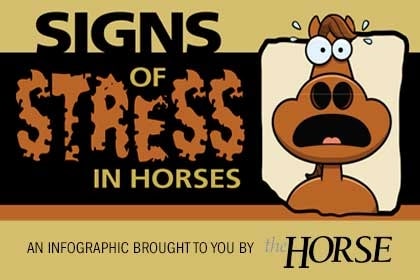
Study: Age Affects Equine Glucose, Insulin Responses
Older horses tended to have higher insulin secretory responses to glucose compared to adult horses, researchers found.

Older horses tended to have higher insulin secretory responses to glucose compared to adult horses, researchers found.

Listen to audio features on equine learning, behavior, dentistry, metabolic syndrome, parasites, and more.

Find information on stress in horses, skin conditions, conditioning, metabolic syndrome, serum amyloid A, and more.
During this year’s lecture, farrier Daisy Bicking and Dr. Nick Frank will present on laminitis and endocrine disorders.

Low-intensity swimming could help maintain glucose and insulin levels without putting excess strain on horses’ limbs.

Compared to a control diet, Spirulina supplementation led to significant weight loss and reduced fasting insulin levels, researchers found.

Dr. Lisa Tadros shares information about identifying EMS, PPID, and laminitis in senior horses.

Find tips on how to extend horses’ “health spans,” maximize performance years, and maintain a good quality of life.

Skin diseases and lameness were the most commonly reported ailments, affecting 31.1% and 23.4% of horses, respectively.

Readers said maintaining weight, osteoarthritis, and other lameness were their top senior horse care concerns.

Researchers say this seems to confirm lore that some horse breeds are more susceptible to EMS than others.

Laminitis risk is the No. 1 reason we worry about equine metabolic conditions such as EMS and PPID when feeding horses.

EMS horses had less microbial diversity than healthy horses, potentially impairing gut health and affecting metabolism.

Follow Tess, a 16-year-old mare, step-by-step as she rehabs from a bought of PPID-related laminitis.

Weight gain is a common sign of EMS. But what other indicators should horse owners watch for?

Sarah Elzinga, MS, is studying inflammation and insulin dysregulation in the horse.
Stay on top of the most recent Horse Health news with
"*" indicates required fields